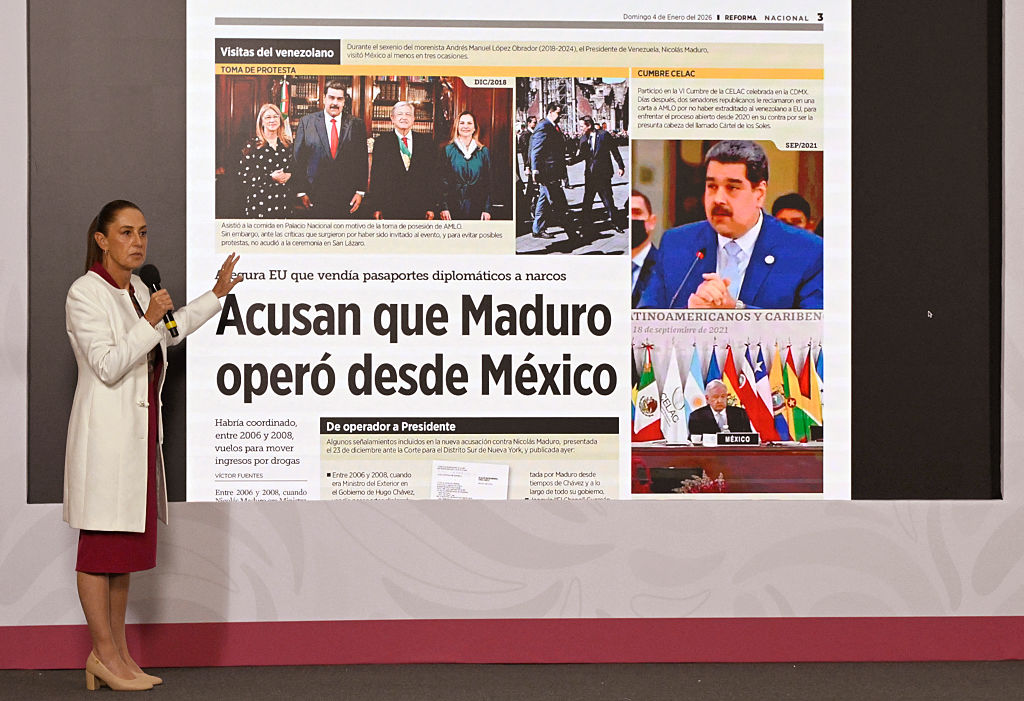Kerry Travels to Brazil and Colombia in Wake of NSA Revelations
Kerry Travels to Brazil and Colombia in Wake of NSA Revelations
In Colombia, the secretary of state hailed progress on peace talks, though allegations of U.S. spying strained the official’s Brazil visit.
In his first visit to Brazil and Colombia since assuming his post, U.S. Secretary of State John Kerry traveled to the two Latin American countries on August 12 and 13. The official’s trip aimed to boost diplomatic ties in the region, following visits by President Barack Obama and Vice President Joe Biden to Latin America earlier this year. But the trip came after the National Security Agency (NSA) scandal broke. Brazil turned out to be one of the largest targets for U.S. spying, reportedly because the country serves as one of the biggest telecommunications hubs in the world. While Kerry’s Colombia visit largely focused on economic and security issues, the secretary was questioned about the NSA allegations during his Brazil stop.
In Colombia, trade and peace talks with the Revolutionary Armed Forces of Colombia topped the agenda as Kerry met with President Juan Manuel Santos, Foreign Minister María Ángela Holguín, and peace negotiators. “Any negotiation that can help to strengthen Colombia’s democracy…and achieves an enduring peace that the people of Colombia can share in is a welcome development, and the United States of America will support that peace,” Kerry said at an August 12 press conference with Holguín. He also hailed the U.S.-Colombia free-trade agreement, noting “it means more money for families here in Colombia, it means more people moving into the middle class.” The secretary addressed U.S. surveillance as well, saying: "We're necessarily engaged in a very complex effort to prevent terrorists from taking innocent lives in many different places." Holguín added that Colombia received “necessary assurances” about working with the United States on security issues.
In Brazil, Kerry discussed a variety of issues, ranging from trade and investment to education and science cooperation. However, the NSA revelations arguably overshadowed these issues. In a press conference with Kerry on August 13, Foreign Minister Antonio Patriota said that the allegations “run the risk of casting a shadow of distrust” between the two countries, and that Brazil is “awaiting clarification” about the reports of spying. "We need to stop practices that violate sovereignty,” added Patriota, echoing a concern voiced by President Dilma Rousseff last month. In response, Kerry said: "Brazil is owed answers with respect to those questions and they will get them. And we will work together very positively to make certain that…these issues do not get in the way of all the other things that we talked about." Kerry also met with Rousseff during his one-day stay.
The revelations could cause a number of setbacks in the U.S.-Brazil relationship. Rousseff is slated to make a state visit to Washington on October 23—the first for a Brazilian president in two decades. But because of the revelations, bilateral accords are effectively stalled, according to diplomats from both countries. It could also hurt a potential arms deal, reports Reuters. The United States hopes to sell 36 fighter jets worth $4 billion to Brazil; France and Sweden are also contenders. In addition, Brazil resumed negotiations with the United States in July to allow the U.S. military to use its Alcântara base in Maranhão for space and satellite launches. The United States wants access to the location, but also aims to keep information access about the base—particular military data—secret. The talks previously fell through in 2002. Discussions on this topic were reportedly off the table during Kerry’s visit.
But some believe the two countries should be focusing on cooperation. Kerry wrote an op-ed for the Sunday edition of Estado de São Paulo, stressing ties between Brazil and the United States in areas ranging from defense to climate change. On the NSA scandal, Kerry wrote: “The stakes are far too high to let one issue detract from the clear momentum we've built toward an even more effective strategic relationship.” An August 12 Folha de São Paulo editorial notes that “Rousseff’s challenge is to separate the strong reaction…to the spying scandal from the necessity to advance other points on the agenda, mainly ones of an economic nature.”








